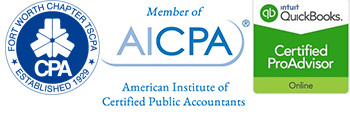Planning for the future can be understandably difficult, particularly when you are dealing with complex business arrangements or family situations.
At McIlvain & Associates, we want to simplify the process of preparing your estate and trust accounts, so you can have the peace of mind that comes with knowing your affairs are in competent and caring hands—and your wealth is destined for growth.

By organizing your assets, you can minimize or alleviate family disagreements, and you can reduce your taxable estate, if you are over the taxable threshold. Estate planning can be complex, involving living wills, various trusts and other legal documents. It is advisable to consult with legal professionals, your financial advisor and CPA, to create a plan that is best suited for you and your wishes.
An important tool for preserving estate assets with potential value increases is the portability option with respect to the descendant’s surviving spouse. The surviving spouse can file an estate return and elect to have the unused estate exemption transferred to them, thus adding more to his or her applicable exemption. To claim the unused portion, an estate return Form 706 must be filed.
The IRS defines a trust as “a relationship” in which one person holds title to property subject to an obligation to keep or use the property for the benefit of another”. A trust is formed under state law. Generally, trusts are legal entities whereby specified property is transferred to the trust, and managed by a designated trustee for the benefit of identified beneficiaries (identified beneficiaries can be “grandchildren” and include those who have not yet been born).
Trusts are essentially treated as separate tax payers, and are taxed in the same way as individual taxpayers (with some important qualifications and differences). When income is “distributed” to the beneficiary, it has the same tax characteristics as when it was received in the trust-i.e. interest income is passed to the beneficiary as interest income. The “distributed” income can be deducted by the trust in calculating the trust’s ending net income for tax purposes.
Common purposes for trusts can be for privacy, charitable giving, asset protection, tax planning, wills and estate planning, and spendthrift protection (for example those who are unable to handle financial responsibility). Types and terminologies of trusts include living trusts (also a revocable trust), testamentary, dynasty (typically known as generation-skipping trusts), irrevocable, simple or complex, fixed (such as life interest or remainder trust), insurance trusts, and asset protection trusts.
IRS regulations are constantly changing and could impact the terms in your existing trust documents. We recommend you have these documents reviewed periodically for any updates that would be necessary for the continued intent of the trust to be lawful and effective.
